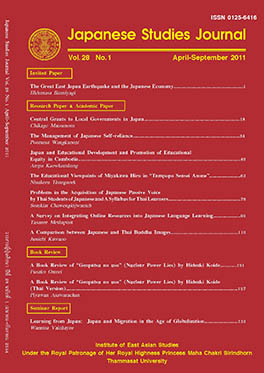Central Grants to Local Governments in Japan
Keywords:
General grant, Specifi c grant, Budget effect, Spillover, Correction of disparities.Abstract
This paper discusses the role of central grants to local governments in Japan, focusingon their budgetary effect, structures and prospect. From the point of view of autonomy offi nance, local governments should be fi nanced mainly their own revenue sources, such aslocal taxes, contributions for its own economic activities. The general grant and the specifi cgrant still play signifi cant roles in the respectively.Currently, in Japan, the local allocation tax functions as a general grant, and thenational government disbursement plays the role as the specifi c grant. The local allocation taxis granted to secure an equitable distribution of fi nancial resources among local governmentsand to guarantee suffi cient revenue to execute planned administration in each jurisdiction.The national government disbursement is mainly used as the means of a regional policy ofcentral government. As for the Great East Japan Earthquake, large-scale fi nancial supportto the ruined area by the central government has chiefl y been executed through the localallocation tax and the national government disbursement.Meanwhile, the grants in Thailand are mainly issued to existing industrial agglomerations,which results in the expansion of the gap between high-income areas and low-incomeareas. This given result should be tolerated, taken an account that the economic policy inThailand is strategized with developing and existing industrial agglomerations as growth polesfor its development.
To improve the fi scal autonomy of the local government, especially securing ownfi scal resources and the expansion of local taxes is indispensable. Even though there are alot of problems in the mechanism of the general grant and the specifi c grant, the existenceof them are signifi cance in Japan and Thailand.




